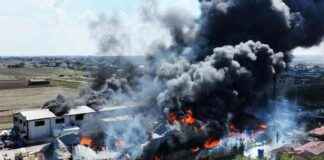Social Risk Map: Enhancing Safety Measures for Families
The Minister of Family and Social Services, Mahinur Özdemir Göktaş, announced the initiation of a social risk map project, aiming to tackle various social issues such as violence against women, child abuse, and addiction comprehensively. This innovative approach will enable a holistic view of social risks, providing opportunities to address them effectively.
Creating a Detailed Risk Map
Minister Göktaş emphasized the importance of protecting families from risks and threats by launching the social risk map project. These risk maps will allow for a detailed analysis of issues like domestic violence, child exploitation, and substance abuse. By mapping out these social risks, it will be possible to identify the prevalence of vulnerable groups such as the elderly, disabled individuals, children at risk of criminal activity, and women facing violence or at risk of violence. This data will facilitate the development of tailored preventive and protective measures for each city, district, neighborhood, and even individual families.
Enhanced Intervention Capabilities
Through close collaboration with various government agencies including the Ministry of Justice, Interior, Education, Health, Youth, and Sports, the Ministry aims to enhance its intervention capabilities. By creating social risk maps for all 81 provinces and 922 districts, a centralized platform will provide access to comprehensive information on social risks, enabling proactive measures to be taken before incidents occur.
Introducing the Family Guide System
In addition to the social risk maps, a new model called the “Family Guide System” will be implemented nationwide. Similar to the concept of family doctors in the healthcare system, this model aims to provide each family with a designated “family guide” in the social services sector. This guide will serve as a point of contact for families to address their social service needs effectively and efficiently. The ultimate goal of this system is to prevent social deterioration and mitigate the potential negative impacts on individuals and families before they escalate.
Identifying Individual Needs
The Family Guide System will be tailored to meet the specific needs of each individual within a family. By establishing a systematic approach to address these needs and enhancing coordination with relevant ministries, the quality of services provided will be significantly improved. This personalized approach will ensure that the family guide monitors and addresses the evolving needs of each family throughout their life cycle.
Contributing to Stronger Communities
This innovative system is set to fulfill a crucial need in social service practices and contribute significantly to the overarching goal of building stronger families and communities. By focusing on preventive measures and early intervention, the Ministry aims to create a safer and more supportive environment for all citizens. Through the implementation of the Family Guide System and the utilization of social risk maps, the Ministry is committed to enhancing the well-being and safety of families across the country.
Conclusion
In conclusion, the introduction of the social risk map project and the Family Guide System marks a significant step towards improving social services and safeguarding families from various risks. By adopting a proactive approach and leveraging data-driven insights, the Ministry of Family and Social Services is poised to enhance its intervention capabilities and provide tailored support to individuals and families in need. With a focus on early detection and prevention, these initiatives aim to create a more resilient and inclusive society where every citizen has access to the necessary support and resources for a better quality of life.





















